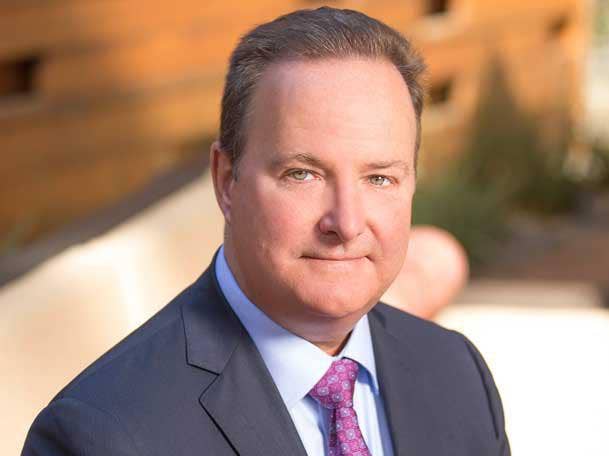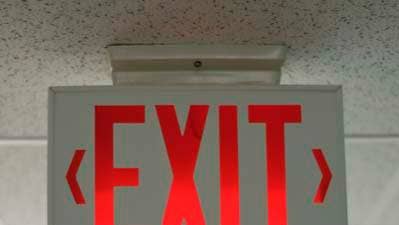NetApp CFO On Why He’s Leaving And Why Not To Obsess Over Financials
Ron Pasek, who this week said he plans to retire from his role at NetApp during a time when NetApp is looking at how to restart growth, told CRN why he is retiring now and why businesses should not read too much into the company's recent financials.

Tough Times At NetApp, But Maybe Not So Tough
NetApp has had a string of three underperforming quarters, including its third fiscal quarter of 2020 which ended Jan. 24.
For the quarter, total revenue was reported at $1.40 billion compared to $1.56 billion in the same quarter of the previous year. Net income on a GAAP basis was $277 million, or $1.21 per share, up from last year's $249 million, or 98 cents per share. On a non-GAAP basis, net income was $265 million, or $1.16 per share, down from last year's $305 million, or $1.20 per share.
There is no surprise, then, that NetApp's unveiling of the planned retirement of its Chief Financial Officer Ron Pasek on the day the financials were released caused more uncertainty. However, Pasek himself, in a one-on-one meeting with CRN, said his retirement has been in the works for some time, and that industry watchers should not be overly concerned with that or with the recent slowdown in NetApp revenue.
Pasek laid out his case about why NetApp is still a strong company with a lot of potential. To see his take on the quarter and on what might lie ahead for NetApp, turn the page.

So first of all, Ron, why are you leaving NetApp?
It's something that I've been talking to George [Kurian, NetApp CEO] about for some time, honestly. It might seem abrupt to you, but it's not to me. When I joined NetApp, I knew it would probably be my last role. I had a goal of retiring before I'm 60.
I think as I've worked here the last four years, I've kind of accomplished most of what I wanted to do [including] structurally improving gross product margins back to the mid-50s [percent], which we did. I wanted to get our EPS (earnings per share) into the $4 to $5 range. With tax reform, I wanted [our] buyback to get approved, and it's nearly done. And then we've dramatically improved the dividend as well.
And so those were my big things. We also inside have a much better handle on our costs and tradeoffs for what we want to do [and] what we want to stop doing. And then the timing is such that we're about to start a new fiscal year. And although I'm working on a plan with George and the team, the new CFO is going to have to own the new fiscal year plan. So it's a good transition time.
It's something George and I have been talking about for several months, if not quarters. And, you know, I certainly wanted to give him enough time to find a successor as well.
So have you hit the 60 mark yet?
End of this year, I will.

Now in addition to sounding a little bit abrupt to somebody in the outside, if you look at NetApp over the past year, it has lost several key executives. It looks like more than the normal turnover. Is your planned retirement related to that, or to NetApp's poor performance the last couple quarters?
You know, I could see why people might think that. I don't think that's the case at all. There's no single reason for each of our departures. I think as we continue to transform as a company, change at all levels is expected, and to some extent welcomed. New people can bring really fresh ideas and different skill sets. You can see we're transitioning as a company. We're more than just a hardware box-selling company. I think we clearly have a cloud initiative to help monetize our software through the hyperscalers, help our customers with their multi-cloud journeys. And those are different skills. New execs can bring different skills to help complement that, too.
Has NetApp started looking for somebody to take over your position?
I purposely gave George [Kurian] a big runway. They've talked to a number of candidates. I'll transition this person who will probably be named later in the quarter. So I'll see them through, [and] will be overlapping through Q4.
When can we expect to see NetApp return to actual growth?
Well, we're very profitable. That's never been the issue. And we have over 20 percent margin even this year being down, you know, 10 percent in revenue. So our business model is in really good shape. If you look at the guide we gave for Q4, the midpoint of the guide would suggest we'd be down 4 percent year-over-year. You know, we've been deploying 200 new quota-bearing demand creation people in the field. That will pay off next year, and should dramatically help the company get back to growth. I'm not going to guide a number because that's not my job at this point. But on the next earnings call, we will give you a guide for the full year FY'21.

What are the key things in NetApp's third quarter financials to watch besides the drop in revenue?
Well, let me just point out that the drop in revenue is really due to one transaction. There was one ELA (enterprise licensing agreement) that we thought would happen in Q3. For that matter, we thought it would happen in Q2. And that was approximately $50 million, and our [revenue] miss was $60 million. So, really we had one transaction that did not occur. Even with that, we still were well within the range of EPS (earnings per share) because we had strong gross margins and obviously we contain our costs well. If you look at that, it's pretty amazing. You miss revenue at $60 million, of which, ELAs are almost pure profit. These are licenses, so there's revenue with almost no cost. And with that not being part of it, we still almost made the midpoint of EPS. So that shows you the power of the leverage of our business model. That's a strong point. The guide for Q4 itself shows operating margins of 23 [percent] to 24 percent right now. Extremely profitable. So, to your earlier point, this is really just about the top line getting back to growth because the rest of the business model is in great shape.
That missed ELA, what happened there?
[ELAs are] very difficult to predict. We didn't have any in the first half. And it's tough. I tried to give a guide for the full year. Unfortunately, since they're back-end loaded, there's a chance that some of them could slip out of the year. And I think we had some slip out of Q4 that we thought we're going to come out in Q4. So it's just difficult. They're lumpy. For the small set of customers that do these, they tend to be our largest global customers. And they're just difficult to predict. It's not as if the customers lost interest, or don't understand the value proposition. It's just difficult to predict. That's it.

So NetApp signed no ELAs during the quarter?
That's right. We've had no ELAs this entire fiscal year.
Is that indicative of a larger trend maybe towards away from ELAs?
It's not. There's no sinister thing going on here. There are usually three-year agreements, so you know who's coming up for renewal. This year, there were a good set of customers that we predicted, [but] we've yet to capitalize on any of those. But I can see the customers that are coming up next year, and they're more numerous. So I feel better about our prospects next year. ELAs typically represent about 2 percent of revenue. And this year, because of the uncertainty, we took it down to 1 percent.

Was that miss caused by the customer switching to a competitor?
No, no, no. Absolutely not. Now these are large estates, that's the thing. That doesn't they're not honest. It generally simplifies their purchasing. So for whatever reason, they may not want to do that.
So the customer is still a customer, then?
Oh, absolutely. Very big customer. In every single case.
So what's next? You said you're retiring. Is that really retiring? Or is that sitting around until you get bored and find another company to work with?
Yeah, so I'm on one board of directors. I like board work. And I'm going to give a shot at trying to be on more boards, and hopefully I can do that. And giving back to others as well, a number of non-profits as well. So yeah, we'll see how that works.